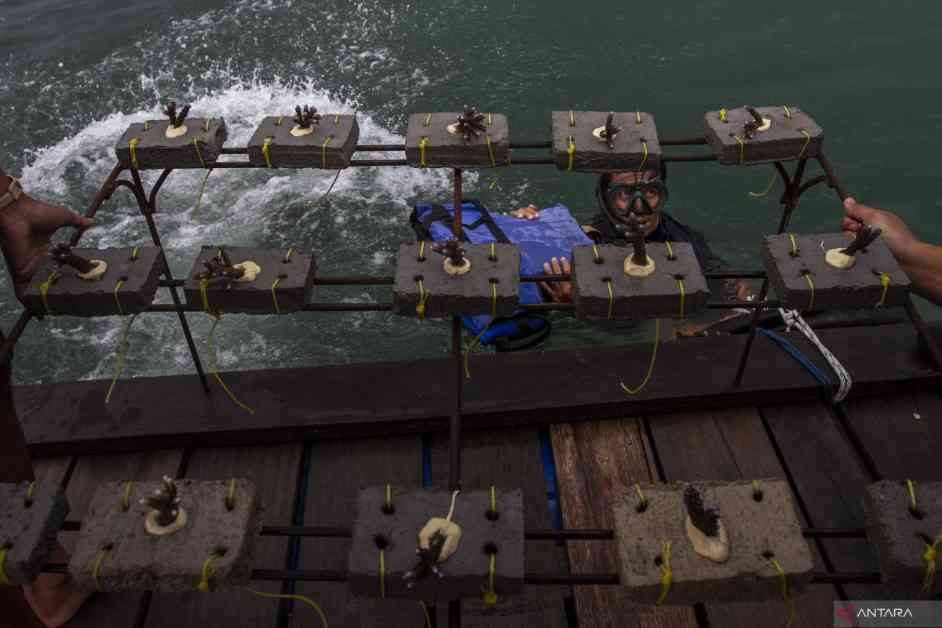## Revolutionary Institute and United States finalize $35 million debt transfer for coral reef preservation
Jakarta (ANTARA) – In a groundbreaking move for environmental conservation, the Indonesian and United States governments have officially completed the debt transfer process amounting to US$35 million on January 15. This momentous agreement is set to pave the way for extensive coral reef preservation and protection efforts in Indonesia.
## The Significance of Coral Reefs in the Coral Triangle
The Director of Ecosystem and Aquatic Biota Conservation at the Ministry of Marine Affairs and Fisheries, M. Firdaus Agung Kunto Kurniawan, revealed that the debt transfer negotiations had been ongoing for several years before reaching a pivotal agreement in July 2024. Highlighting the critical importance of coral reef ecosystems, Kurniawan emphasized that the allocated funds will be primarily directed towards safeguarding the biodiversity-rich regions of the Bird’s Head Seascape and the Sunda Banda Sea.
“These two areas were selected due to their inclusion in the world-renowned coral triangle, known for its exceptional biodiversity. Scientific studies have shown that nearly 75% of the world’s coral reef species thrive within the coral triangle,” Kurniawan stated.
## Partnership with International Conservation Organizations
The implementation of the debt transfer agreement will be facilitated through collaborative efforts with esteemed international non-profit conservation organizations, namely The Nature Conservancy (TNC) and Conservancy International (CI). These organizations will work hand in hand with their Indonesian counterparts, Yayasan Konservasi Alam Nusantara (YKAN) and Yayasan Konservasi Cakrawala Indonesia, to ensure the effective allocation and utilization of the allocated funds.
## Prioritizing Coral Reef Conservation and Community Engagement
CEO of The Nature Conservancy, Jennifer Morris, outlined the key sectors that will receive prioritized funding, including coral reefs and their associated coastal marine ecosystems, marine protected areas, habitat connectivity zones, and conservation efforts for endangered marine species. Additionally, YKAN Executive Director Herlina Hartanto underscored the pivotal role of community involvement in the utilization of these funds, emphasizing the importance of capacity building initiatives to empower local communities in tackling environmental challenges.
Hartanto stated, “The community will play a central role in executing this program, ensuring the sustainability of coral reef protection efforts.”
By entrusting the management of the funds to a dedicated Supervisory Committee, led by the Ministry of Marine Affairs and Fisheries in collaboration with the Finance Ministry and various non-profit organizations, the debt transfer aims to establish a transparent and accountable framework for the effective utilization of resources in safeguarding Indonesia’s marine ecosystems.
This groundbreaking initiative not only underscores the global commitment to environmental conservation but also highlights the crucial role of community engagement in ensuring the long-term sustainability of coral reef ecosystems. Through collaborative partnerships and targeted funding allocation, the Indonesian and United States governments are setting a precedent for international cooperation in safeguarding our planet’s natural heritage.






















